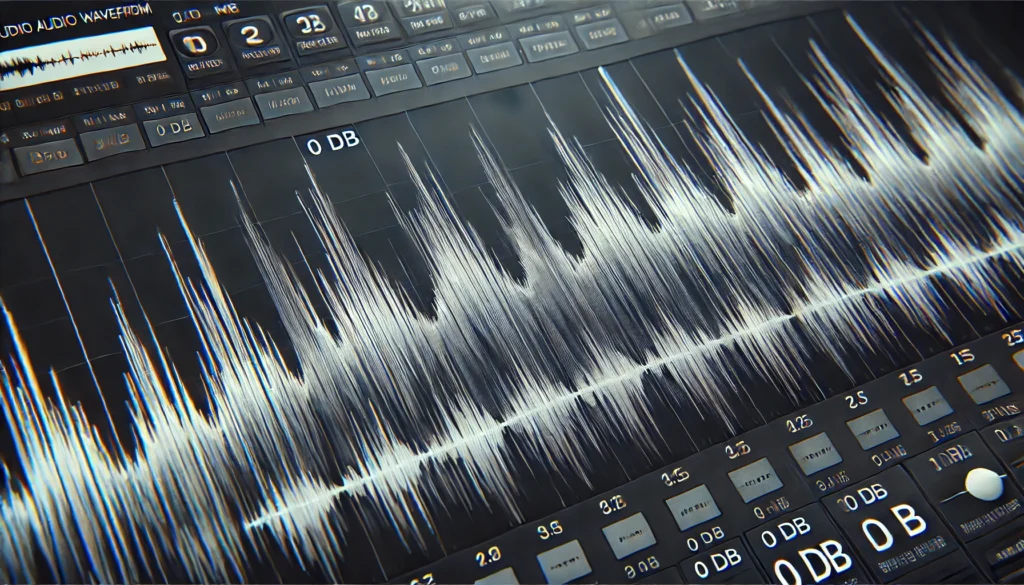
Mastering is the final frontier in the music production process, where all the hard work of recording, mixing, and arranging comes together to create the finished product. It’s a crucial stage in music production that ensures your track sounds its best on any playback system, from high-end speakers to tiny earbuds. However, mastering is also an intricate process that requires attention to detail, experience, and knowledge of the tools at your disposal. Even experienced engineers can make mistakes that affect the final sound quality. In this article, we’ll discuss the top 10 common mistakes in mastering and offer music production tips to help you avoid them.

1. Over-Limiting the Track 😬
One of the most frequent common mistakes in mastering is over-limiting the track in an attempt to make it as loud as possible. While loudness is important, excessive limiting can lead to a flat, lifeless sound with little dynamic range. This compression technique reduces the track’s peaks and squashes everything down to an overly uniform volume. The result? A track that sounds overly compressed, with reduced clarity and punch.
Audio Mastering Tip : Aim for a balanced approach to loudness. Use limiting sparingly, focusing on achieving a competitive loudness without sacrificing dynamics. Make sure you leave headroom for your track to breathe.
2. Ignoring the Mix’s Balance 🎚️
Before you start the mastering process, make sure your mix is balanced and as clean as possible. Many producers jump straight into mastering, only to discover that the mix is fundamentally flawed, leading to ineffective mastering. Issues like muddiness, excessive reverb, or unbalanced levels between instruments will become more pronounced in the mastering stage, and no amount of EQ or compression can fix them.
Music Production Tip : Always take the time to perfect your mix before moving on to mastering. Ensure that all the elements are balanced and that there is clarity in the low end, midrange, and treble frequencies.
3. Over-Compression 🎧
Another common mistake in audio mastering is over-compressing your track. Compression is used to control the dynamics and balance of a song, but when overdone, it can rob the track of its life and energy. Over-compressed tracks often sound flat and lack the punch and warmth that are characteristic of a well-mastered song. This can also lead to distortion when pushed too far.
Audio Mastering Tip : Use compression subtly and adjust the threshold and ratio settings carefully. Aim to retain the natural dynamics of the track while controlling the most aggressive peaks. A multiband compressor can also help you apply compression more selectively to different frequency bands.
4. Not Checking in Multiple Listening Environments 🎶

A track may sound great on your primary listening setup (studio monitors or headphones), but how will it sound on a variety of other systems? Not checking your track in different environments is a huge mistake. A song that sounds balanced and punchy in the studio may sound completely different when played on car speakers, earbuds, or a phone. To get the best result, you need to evaluate your track on various playback systems to ensure consistency.
Audio Mastering Tip : Take time to listen to your track in different environments and on various devices (headphones, phone speakers, car audio, etc.). This will give you a better idea of how your track will translate across different listening systems.
5. Neglecting the Low-End Frequencies 🎸
The low end is one of the most critical areas of a track, but it can also be one of the trickiest to manage during audio mastering. If your track is too bass-heavy, it can sound muddy and overpower the other frequencies. On the other hand, if the low end is too weak, the track may lack warmth and fullness.
Music Production Tip : Use EQ carefully to control the low-end frequencies. Be mindful of sub-bass that can make your track feel congested. You can use a high-pass filter to clean up unnecessary low-end rumble while retaining the punch and warmth of the bass and kick.
6. Not Using Reference Tracks 🎧
A reference track is a professionally mastered song that you compare your track to during the mastering process. Not using reference tracks is a common mistake, as it makes it difficult to judge how your song measures up in terms of loudness, EQ balance, and overall quality. Reference tracks are an invaluable tool for mastering, helping you stay objective and providing a clear benchmark for your work.
Audio Mastering Tip : Select reference tracks that are similar in style and genre to your music. Compare elements like loudness, tonal balance, and frequency response to ensure your track is in line with industry standards.
7. Too Much EQ Boosting 🎶
It can be tempting to add excessive EQ boosts in the hope of making a track sound more polished, but this can lead to tonal imbalances and unnatural sounds. Boosting too much in any frequency range can create harsh or unnatural frequencies, leaving your track sounding less professional.
Music Production Tip : Use EQ subtly to make small adjustments rather than dramatic boosts. If you feel the need to boost a frequency, consider cutting from another range to maintain balance and avoid creating unwanted resonances or harshness.
8. Skipping the Dithering Process 🎼
Dithering is a process that adds a small amount of noise to the audio when reducing the bit depth of the file. Skipping this step can result in a loss of clarity and introduce unwanted digital artifacts when your track is rendered to a lower bit depth, such as 16-bit for CD distribution.
Audio Mastering Tip : Always apply dithering when converting your final master to a lower bit depth (such as 24-bit to 16-bit). This helps maintain the integrity of the track and reduces the likelihood of distortion.
9. Failing to Check for Clipping and Distortion 📉

Clipping occurs when the audio level exceeds 0dB, causing unwanted distortion that can severely impact the quality of your track. It’s a common mistake in mastering to ignore clipping and assume the track will sound fine after processing. Distortion, even subtle, can undermine the overall quality of your song.
Audio Mastering Tip : Check for clipping at both the mix and master stages. Use metering tools to ensure your track isn’t clipping during the final stages of mastering, and ensure the output levels are at an optimal volume.
10. Rushing the Mastering Process ⏳
Mastering is a critical step that shouldn’t be rushed. It takes time to ensure your track sounds its best. Rushing the process can lead to missed details, poor decisions on EQ and compression, and a less-than-ideal final product. Just like any other aspect of music production, mastering deserves careful attention and patience.
Music Production Tip : Take your time with the mastering process. If you feel fatigued or unsure, take a break and return to the track with fresh ears. It’s always better to spend a little extra time refining your master than to rush through it and regret it later.
Conclusion 🎶
Mastering is a delicate and complex process that requires both technical skill and a good ear. By avoiding these common mistakes in mastering, you can significantly improve the overall sound quality of your tracks. Whether you’re a DIY producer or a seasoned engineer, following audio mastering tips like using reference tracks, checking different listening environments, and using subtle EQ and compression will lead to a better final product. Remember, patience is key, and taking the time to perfect your master will always pay off in the end.




